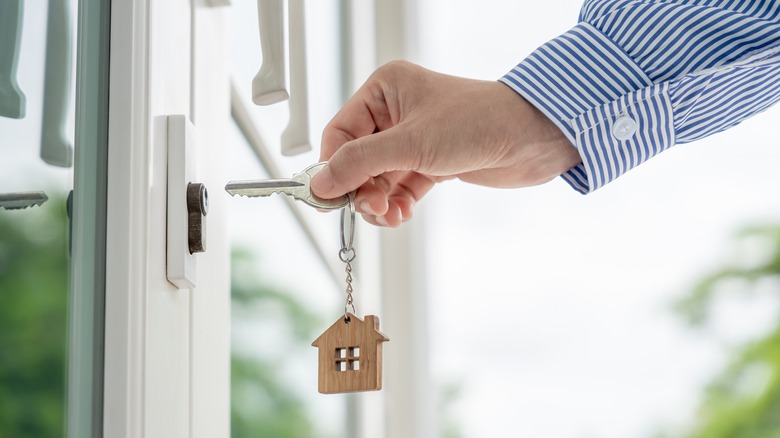Can You Really Get A House Using Adverse Possession?
Finders keepers, right? You have probably heard of squatters' rights, or the idea that someone can find a place and live in it long enough to claim it legally. As lovely as it would be to find a home, fix it up, and keep it without having to buy it, the legality of situations like these is nuanced. Requirements vary by state, and some can be quite challenging to meet or prove. Additionally, if you plan to acquire real estate through this method, you need to be prepared to be easily thwarted. However, if you can stick it out through the required tenancy and win a potentially arduous legal battle, you could earn yourself a home without having to pay for it.
While the term "squatters' rights" may sound more appealing, "adverse possession" is a more formal term. Adverse possession is a legal doctrine that allows a trespasser to acquire a valid land title if they meet a certain set of requirements. The requirements can include the duration the trespasser occupies the space, whether or not it's a hostile situation (meaning that the owner's rights are violated), the openness and exclusivity of the possession, and the actuality of the possession. So, while it is technically possible to acquire a house through adverse possession, it can be difficult and time-consuming, both during the squatting period and throughout the subsequent court case. If you want to know more, learning about each requirement is a good place to start.
How does adverse possession work?
The first requirement is the length of time a trespasser needs to continuously occupy the disputed property. Typically, this will be between seven and 20 years, but there are circumstances where it can be much shorter or longer. It can be as short as three years in Arizona or as long as 60 years in New Jersey, for example. Taxes, the deed, the land, and the state will all determine the required duration. The continuous occupation must also be hostile. Often, this means that the house is occupied without the owner's consent; however, there is some variance by state related to acting in good or bad faith. If you have a lease, a renter's agreement, or another agreement, the requirement will not be fulfilled.
Next, the occupation has to be open and notorious, not hidden. While the owner does not have to know about the occupation, the trespasser cannot try to live in the house secretly. The possession must also be exclusive. This does not mean the trespasser has to live alone, but one individual needs to act as if they are the sole owner of the property. Finally, actual possession must be proven. This can include proof of residency, improvement, land cultivation, and more.
While five requirements may not seem like much, you can see how difficult they would be to achieve, especially because it can be disrupted at any time in many ways, such as the true owner implementing home intruder protocols or otherwise performing maintenance during the trespasser's stay, reporting the trespasser to the police before requirements are met, or giving them permission for tenancy.
Is adverse possession likely to succeed?
If you are able to meet all of the criteria and get your case to court, then it is possible to get a house through adverse possession. Between the years 2010 and 2015 in Nebraska, there were 16 adverse possession cases, and the adverse possessors won seven of them. It should be noted that most cases were related to boundary disputes, not houses, but it is interesting that they were successful nearly half of the time. Boundary disputes often occur when neighbors cross each other's property lines with projects like fences, gardens, or decks. When the adverse possession requirements are met, a portion of the true owner's land can ultimately become the property of the neighbor. So, it is definitely worth knowing what to do if your neighbor builds a fence on your property. For a whole house specifically, there is less data on the actual success rate.
Although it is theoretically possible to get a house in this way, it is probably much better to try to buy a property you are interested in. Squatting in a house puts you at risk of legal trouble if you are caught and reported by the owners. Wasting your time and money trying to meet the difficult requirements is also a risk. So, if you are looking to find out what to do about an abandoned house in your neighborhood or any other intriguing property, trying to obtain it through squatters' rights is likely not the best solution.


